Pediatric Endocrinology Fellowship Program
The overall goal of the fellowship program is to educate and train pediatricians for academic careers as board-certified pediatric endocrinologists. In addition to the development of outstanding clinical and teaching skills, an important component of this training program is to prepare fellows for a career in clinical or laboratory bench research in a field relevant to pediatric endocrinology.
Prospective Fellows
We appreciate your interest in the University of Minnesota's Pediatric Endocrinology Fellowship Program and look forward to reviewing your application. Our program participates in the National Resident Match Program (NRMP) and will accept applications only through the Electronic Residency Application Service (ERAS).
Please Note:
- Applicants must have completed an ACGME-accredited residency program by the fellowship start date.
- Our funding specifies that trainees receiving support from award funds must be a citizen of the United States, a non-citizen national, or a foreign national having in their possession a visa permitting permanent residence in the United States.
- 3 letters of recommendation are required, preferably to include one from the residency program director.
The University of Minnesota demonstrates a commitment to leveraging the transformative power of equity and diversity to advance excellence in teaching, learning and community engagement. Applications from individuals who self-identify as members of underrepresented groups are particularly welcome.
Stipends & Benefits
This page provides access to information on stipends and benefits for medical residents & fellows.
Medical/Health/Dental/Life Benefits: https://shb.umn.edu/health-plans/rfi
Additionally, each medical fellow receives:
- Funding of the ABP General Pediatrics Certifying Exam
- At least $1,500 for professional development
- At least $300 annually in education funds
- MN medical license, or MN residency permit if ineligible for a MN license
- AAP membership with subspecialty section membership
- T32 grant allowance of $1,000 per appointment year for travel expenses associated with a professional meeting/conference
Research Programs
The Pediatric Endocrinology Fellowship program provides flexibility in pursuing clinical, basic science or translational research with appropriate mentorship to ensure success.
Each first-year fellow will be assigned a faculty research mentor at the start of the fellowship following discussions with the research program director. They will work together to select a research project, and the role of the fellow in that project will be defined.
For fellows pursuing a master’s degree in clinical research, this work will also form the basis for the required master's research thesis.
Master’s in Clinical Research
The clinical track involves completion of a Master's Degree in Clinical Research. The University of Minnesota Medical School in conjunction with the School of Public Health has established an innovative Master's Degree program in the education and training of individuals in the conceptualization, design and implementation of clinical research. This program is designed to be compatible with a clinical fellowship training program. 38 credits are required over a three year period, with the following course content:
- Fundamentals of Clinical Research (3 credits)
- Ethics (1 credit) (includes IRB certification)
- Biostatistics I (4 credits)
- Biostatistics II (4 credits)
- Epidemiology (4 credits)
- Epidemiology Methods (2 credits)
- Human Genetics (4)
- Clinical Trials (3 credits)
- Grant Writing (2 credits)
- Research Seminar (2 credits)
- Master's Thesis (10 credits) (fellowship research project)
Basic Science Pursuits, Educational Focus, or Other Academic Pursuits
Each fellow who chooses the basic laboratory track will enroll in appropriate advanced basic science courses to assist them in learning and applying fundamental laboratory based disciplines. Formal courses, in addition to basic discipline courses, will include, but not be limited to:
- Ethics (1 credit) (includes IRB certification even if the fellow's primary research does not involve human subjects)
- Biostatistics I (4 credits)
- Biostatistics II (4 credits)
- Human Genetics (4)
- Grant Writing (2 credits)
For fellows pursuing basic science research, laboratory space will be provided for each fellow within the space allotted to the faculty mentor. It is expected that the fellow will become an integral part of that laboratory team, and that the major portion of the fellow's instruction will occur in that setting. Regularly scheduled laboratory research meetings and seminars will be required.
Training & Clinical Information
Goals of Training
The clinical training goals will be presented to the fellows during their initial orientation and will be repeated and reinforced annually and signed by the fellow and the Program Director. Goals may be modified annually based upon changing program requirements and feedback from the fellows. The fellow will keep a running list of diagnoses encountered in clinic and on the wards. Annually, the program director will review the list to ensure that the fellow is adequately exposed to the entire clinical spectrum of pediatric endocrinology. The goal of the training program is that the fellow will demonstrate competence in the following areas during the fellowship program:
- Elicit histories and perform general physical examinations geared toward diagnosis of endocrine disorders
- Evaluate normal and abnormal patterns of childhood growth and development.
- Interpret and integrate medical literature into patient care.
- Understand the principles of endocrine diagnostic laboratory testing and genetic testing.
- Counsel patients and their families on prognosis and outcomes of disease and therapy.
- Devise and evaluate appropriate endocrinologic therapies.
- Provide diagnostic, therapeutic and continuity care for endocrinologic patients from infancy through adolescence.
- Coordinate endocrine evaluation and therapies with consulting services.
- Clinical experiences will involve all aspects of diagnostic and therapeutic medicine and care in the following:
- Genetic short stature, constitutional growth delay, genetic disorders associated with growth failure including Turner Syndrome, Down Syndrome, intrauterine growth retardation, nutritional and psychosocial growth disorders
- Disorders of the growth hormone axis, growth hormone deficiency and insensitivity
- Disorders of hypothalamic and pituitary function
- Brain tumors and congenital malformations of the hypothalamus-pituitary region
- Tall stature and excessive growth syndromes
- Variations of patterns of pubertal development; delayed and precious puberty
- Adolescent gynecology with emphasis upon sexual function, STD, PCOS
- Testicular and ovarian function, primary and secondary gonadal failure, gonadal tumors
- Thyroid disorders including hyper- and hypofunction, benign and malignant tumors, autoimmune disease, sick euthyroid syndrome, MEN
- Disorders of the adrenal glands; hyper- and hypofunction
- Disorders of sexual differentiation; adrenal steroidogenesis defects, ambiguous genitalia, micropenis, cyryptorchidism
- Disorders of calcium, phosphorus and vitamin D metabolism, parathyroid hormone secretion and action, metabolic bone disease and mineralization defects (rickets, osteomalacia, osteoporosis)
- Degulation of fluid, mineral and acid-base metabolism; DI, SIADH, cerebral salt wasting
- Carbohydrate metabolism; type 1 and 2 diabetes, CF-related diabetes, hypoglycemia
- Evaluation and treatment of obesity and the metabolic syndrome
- Disorders of lipid metabolism
- Autoimmune polyglandular syndromes
- Gender dysphoria
Inpatient Clinical Responsibilities
Year one: 12 weeks
Year two: 14 weeks
Year three: 14 weeks
All patients admitted on the Endocrinology Consultation Service will be assigned to the fellow when he or she is covering the inpatient clinical service. The average number of inpatients is 4-8 ongoing management patients and 4-10 new consults per week. The fellow is a consultant; the daily care of these patients is entrusted to the house staff. Patients are regularly admitted to M Health Fairview Masonic Children’s Hospital Medical/Surgical Care Units 5 and 6, the Pediatric Intensive Care Unit 3, the Bone Marrow Transplant Unit 4, the Neonatal Intensive Care Unit, the Child and Adolescent Psychiatry Units. Occasional consults originate from the Pediatric Infusion Center, Children’s Rehabilitation, Obstetrics, or Hennepin County Medical Center.
While the attending faculty member is ultimately responsible for all inpatients, the fellow acts as the first-line consultant. A medical student or second year pediatric resident on the Endocrine rotation may accompany the fellow. The fellow’s responsibilities include the primary interactions with the patient/family/nursing staff, with the support and supervision of the attending faculty member. The fellow is responsible for providing a plan for diagnosis and treatment, and arranges for needed consultations and special testing procedures. The fellow is the primary contact with parents of hospitalized children. This includes education of parents, and any needed work with social services and psychological services. The fellow is teacher to the medical students and house officers who are also assigned to the patient through the ward assignment mechanism.
It is policy that all consultation requests are answered and completed within 24 hours of receipt. Completion includes staff supervision, including examination of the patient by faculty and review and signing of the consultation note written by the fellow. One-on-one teaching is done at this time, including initiation of literature searches. Rounds are conducted daily. The fellow is instructed by the attending faculty member on an ongoing basis centered on patient care. An additional 30 minutes of didactic education is independent of patient care that will occur on a daily basis.
During the inpatient rotation, the fellow takes home-call every night Monday through Thursday and Saturday night. A strict fatigue policy is in place so additional nights off will be provided when needed. The fellow is off service every Sunday. There is no night call or weekend call when the fellow is not on the inpatient service.
Outpatient Training Responsibilties
The fellow will attend one half day of endocrinology clinic alternating with one half day of diabetes clinic per week each week during the three year fellowship. All fellows alternate general endocrine and diabetes clinics every other week in the Discovery clinic on the Masonic campus. In addition, all fellows attend four weeks per year of an intensive outpatient rotation consisting of the CAH clinic, brain tumor clinic, bone metabolism clinic, BMT follow-up clinic, Turner syndrome clinic, lipid disorders, weight management clinic, type 2 diabetes, and community general endocrinology clinics. Year-specific goals objectives for each clinic should be followed and the fellows will be evaluated on how well they meet these objectives.
A description of the outpatient clinics is as follows:
- The Center for Congenital Adrenal Hyperplasia (CAH) and Disorders of Sex Development (DSD): A multidisciplinary clinical care and research facility that is built upon a unique collaboration between healthcare professionals at the University of Minnesota Medical Center - Fairview and the Minnesota Department of Health Newborn Screening program (MDH-NBS), headed by Dr. Kiki Sarafoglou. The Center addresses the varied and long-term spectrum of clinical needs for patients with CAH and other rare disorders of sex development. Clinics are held monthly and staffed by a pediatric endocrinologist, a pediatric urologist, a genetic counselor, and faculty from the Program in Human Sexuality.
- Brain Tumor Clinic: A multidisciplinary clinic that provides comprehensive evaluation, therapy, and follow-up of pediatric patients with brain tumors and associated endocrine sequelae. Clinic is held monthly and is staffed by Dr. Miller from Endocrinology, a pediatric neurologist, a neurosurgeon, and neuropsychologists.
- Metabolism Clinic: A multisiciplinary clinic that provides high quality, compassionate, and thoughtful diagnostic evaluations and follow up care of patients and families at risk for or affected by inborn errors of metabolism, staffed by Dr. Sarafoglou and genetic counselors.
- Lipid Disorders: Specialty clinic for children with dyslipidemia and other inherited disorders of lipid metabolism, staffed by Dr. Julia Steinberger in Pediatric Cardiology.
- Bone Metabolism: This specialty clinic provides care for children with disorders of bone metabolism and is staffed at Gillette Children’s Specialty Care by Dr. Lauren Yauch. Fellows may see patients with genetic diseases having bone disorders as part of the spectrum of disease or healthy children with multiple fractures or osteopenia/osteoporosis.
- Weight Management Clinic: Multidisciplinary subspecialty clinic for children who are overweight or obese where principles of lifestyle modification as well as pharmacologic interventions are utilized. These clinics are staffed by Drs. Oberle, Sunni, and Bomberg.
- Type 2 Diabetes Clinic: A specialized clinic for children with type 2 diabetes staffed by Drs. Oberle and Sunni.
- Community general endocrinology: General endocrinology clinic is available at the Fairview Ridges site, which is staffed by Drs. Nathan, Sunni and Jimenez-Vega. The Woodbury site is staffed by Drs. Nathan, Rayannavar and Al-Rayess). Also, the Maple Grove site is staffed by Drs. Bellin and Dr. Jimenez-Vega).
The fellow is assigned one or more new patients at each clinic. In addition, the fellow is assigned several return patients each week. An attempt is made to provide a breadth of experience for each fellow by regulating which patients are seen. Assignment of each clinical patient to the appropriate trainee is monitored by a faculty member. The fellow is the first physician to see the patient. He or she then narrates the history and physical to a member of the faculty on completion of this work-up. The faculty member uses this time for teaching and review of the work-up done by the fellow. Each patient is then seen by the faculty member, and the pertinent parts of the work-up are personally checked. The fellow is then responsible for that patient’s continuing care while attending that clinic. In addition to reviewing the further studies that might be done with the faculty member, the fellow completes a clinic note to the referring physician or agency. The note is reviewed, corrected and signed by the faculty member.
During the first year of fellowship, the fellow may not have routine continuity clinic scheduled due to the potential interference of Master’s classes. However, it is a requirement that the fellow continue to attend ½ day of clinic per week. The first year fellow is encouraged to attend as many different clinics as possible to get the greatest breadth of experience in terms of both patients and care providers during this year. If the first year fellow is not involved in taking Master’s courses, a scheduled ½ day continuity clinic may occur. During the second and third year, the fellow will have continuity clinics alternating in endocrinology and diabetes.
Diabetes Camp:
The fellow will spend one week each summer at Camp Needlepoint diabetes camp and will be under the supervision of a pediatric endocrinologist. The endocrinologist they will supervise the insulin dosing of campers with diabetes both in camp and on trail.
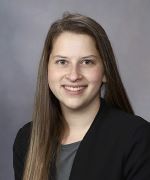
Laura Golob, MD
goo0029@umn.edu
Fellowship Dates: 2022-2025
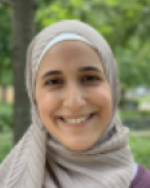
Heba Al-Rayess, MD, MS
Assistant Professor, Division of Pediatric Endocrinology
alray007@umn.edu
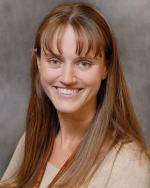
Melena Bellin, MD
Professor, Division of Pediatric Endocrinology
bell0130@umn.edu
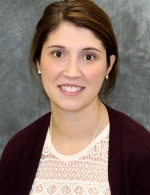
Megan Oberle Bensignor, MD, MSHP
Assistant Professor, Division of Pediatric Endocrinology
moberle@umn.edu
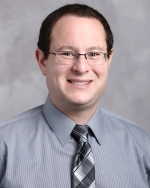
Eric Bomberg, MD, MAS
Assistant Professor, Division of Pediatric Endocrinology
bombe002@umn.edu
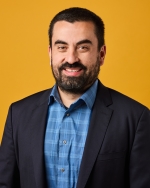
Jose Jimenez-Vega, MD
Assistant Professor, Division of Pediatric Endocrinology
jjvega@umn.edu
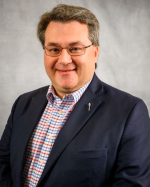
Bradley Miller, MD, PhD
Professor & Division Director, Division of Pediatric Endocrinology
mille685@umn.edu

Antoinette Moran, MD
Vice Chair of Faculty Development and Marguerite & James Dugger Professor in Pediatrics, Division of Pediatric Endocrinology
moran001@umn.edu
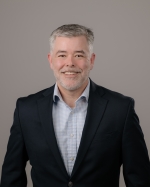
Brandon Nathan, MD
Associate Professor, Division of Pediatric Endocrinology
natha039@umn.edu
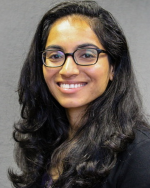
Arpana Rayannavar, MD
Assistant Professor, Division of Pediatric Endocrinology
rayan005@umn.edu

Kyriakie Sarafoglou, MD
Professor, Division of Pediatric Endocrinology & Division of Pediatric Genetics and Metabolism
saraf010@umn.edu
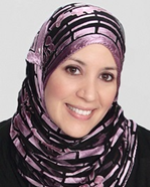
Muna Sunni, MBBCh, MS
Associate Professor & Fellowship Program Director, Division of Pediatric Endocrinology
sunni001@umn.edu
Tasneem Abdel-Karim, MBBS
Graduated in 2024
Sandy Liu, MD
Graduated in 2024
Lauren McClure, DO
Graduated in 2021
Eric Velazquez, MD
Graduated in 2020
Heba Al-Rayess, MD
Graduated in 2020
Contact Us
Fellowship Program Director
Brandon Nathan, MD
Associate Professor
natha039@umn.edu
Placeholder Section
Fellowship Coordinator
Michelle Stepka
mstepka@umn.edu
(612) 624-4912
For more information on our other medical fellowship programs, click here.